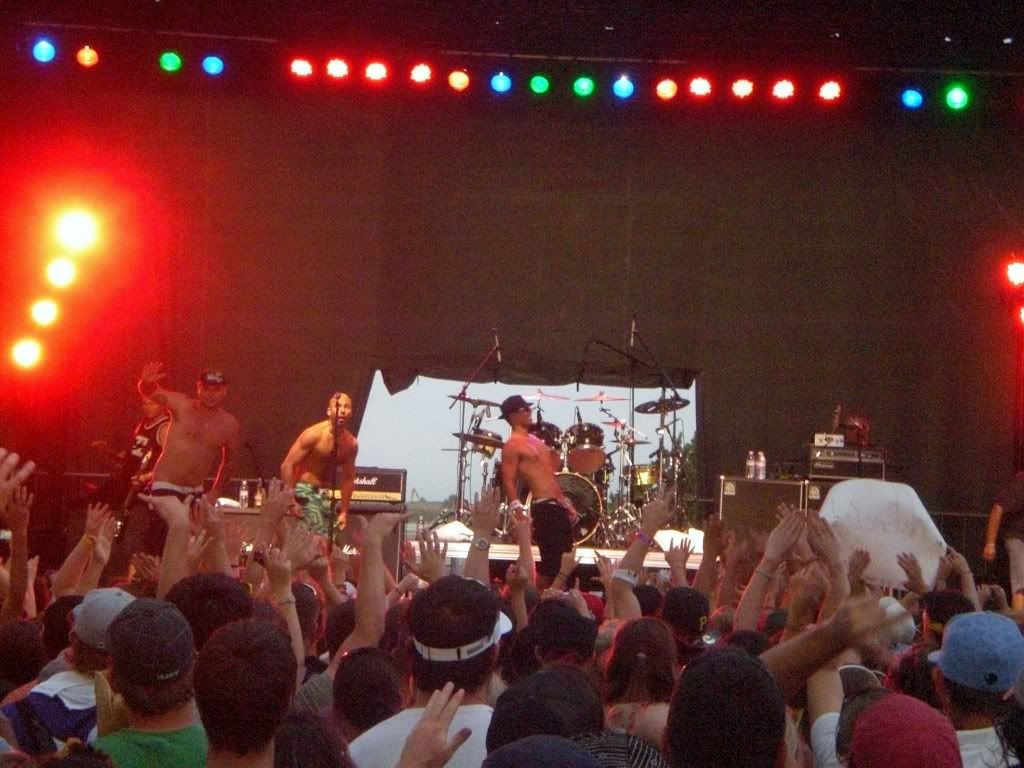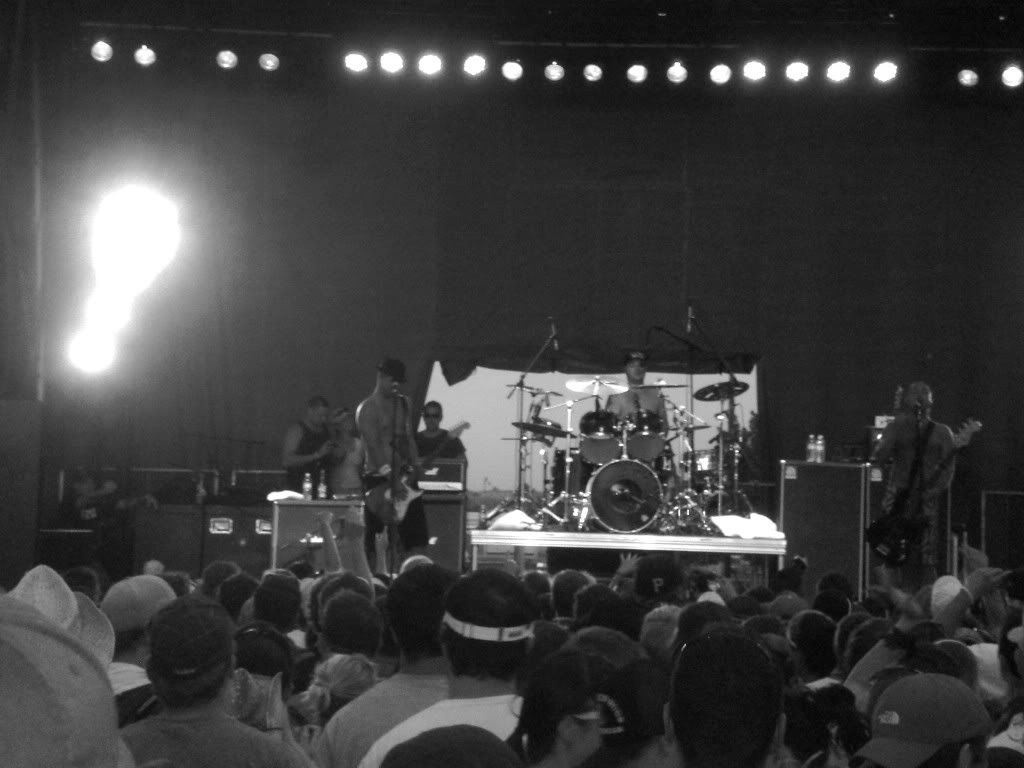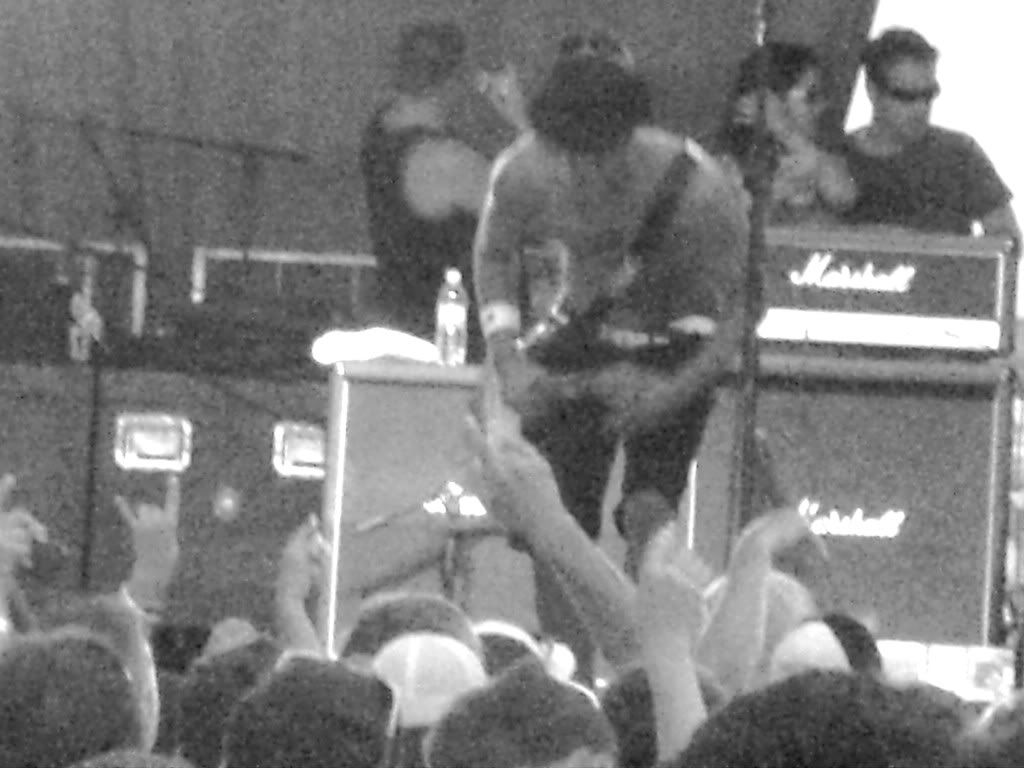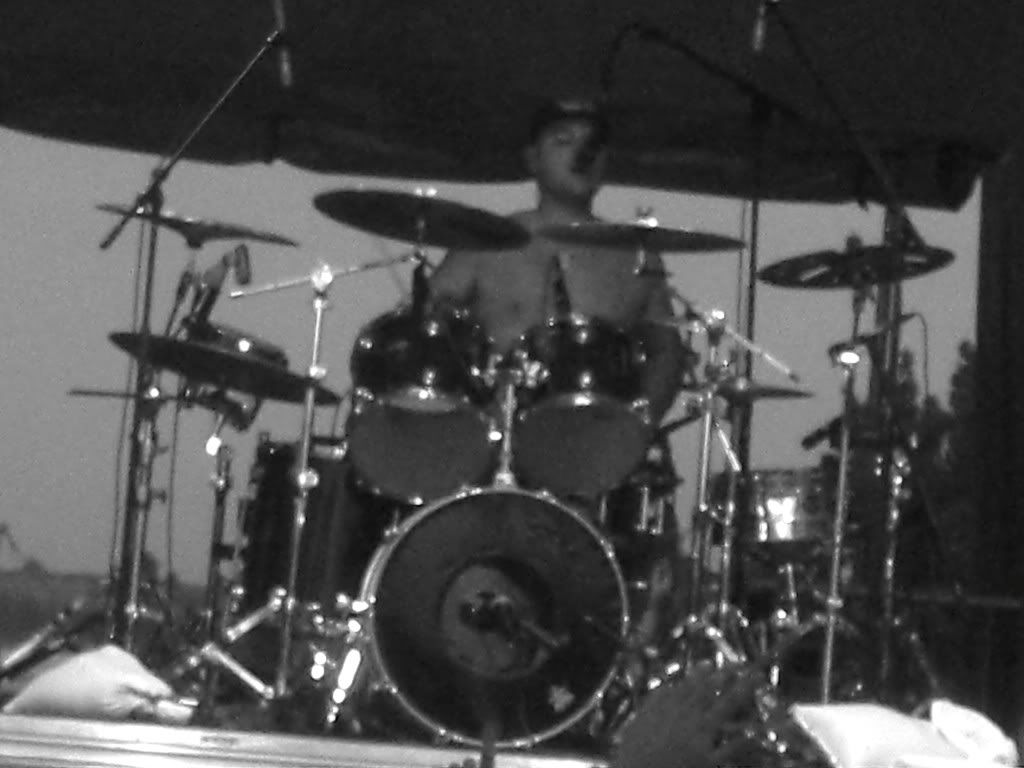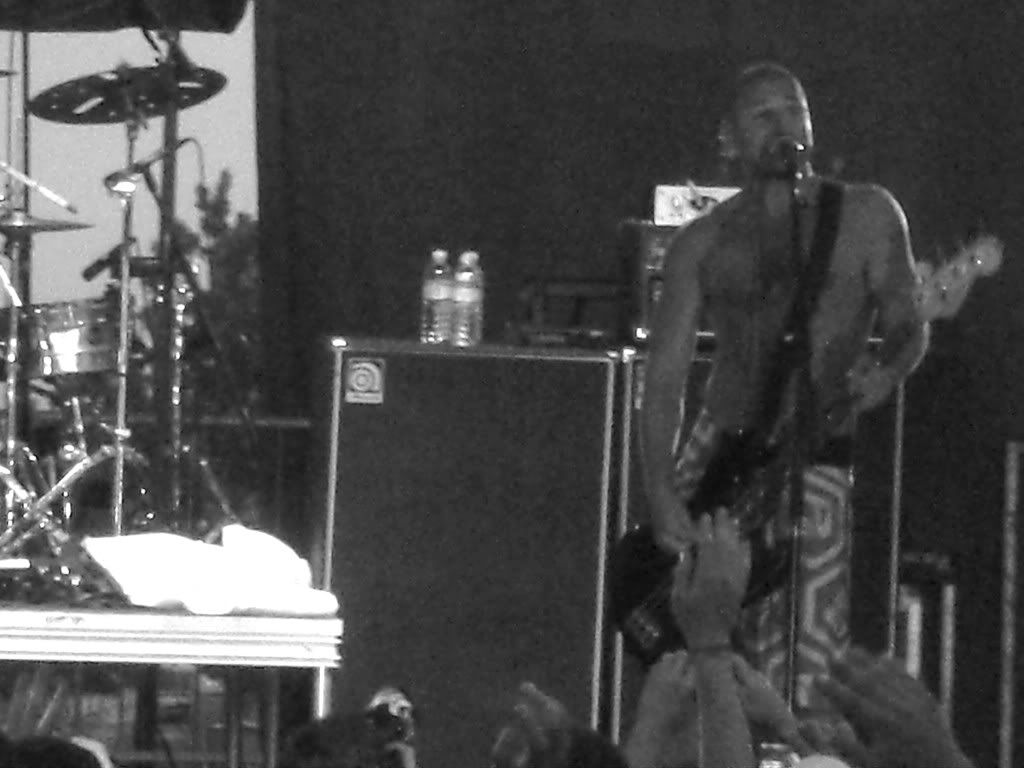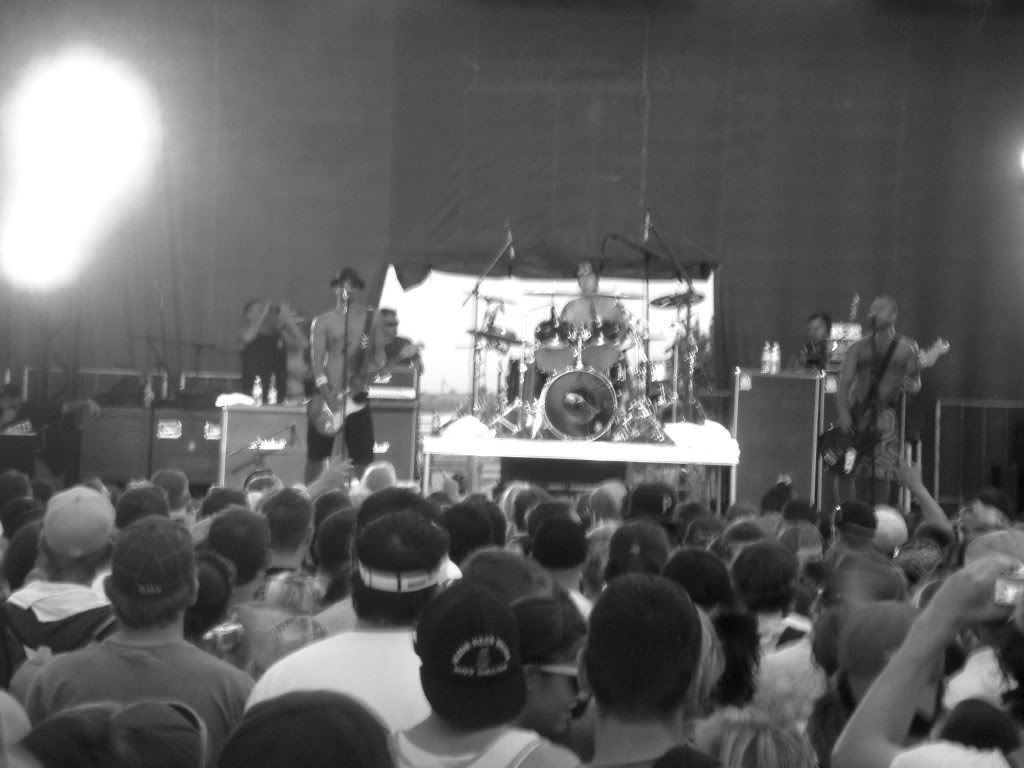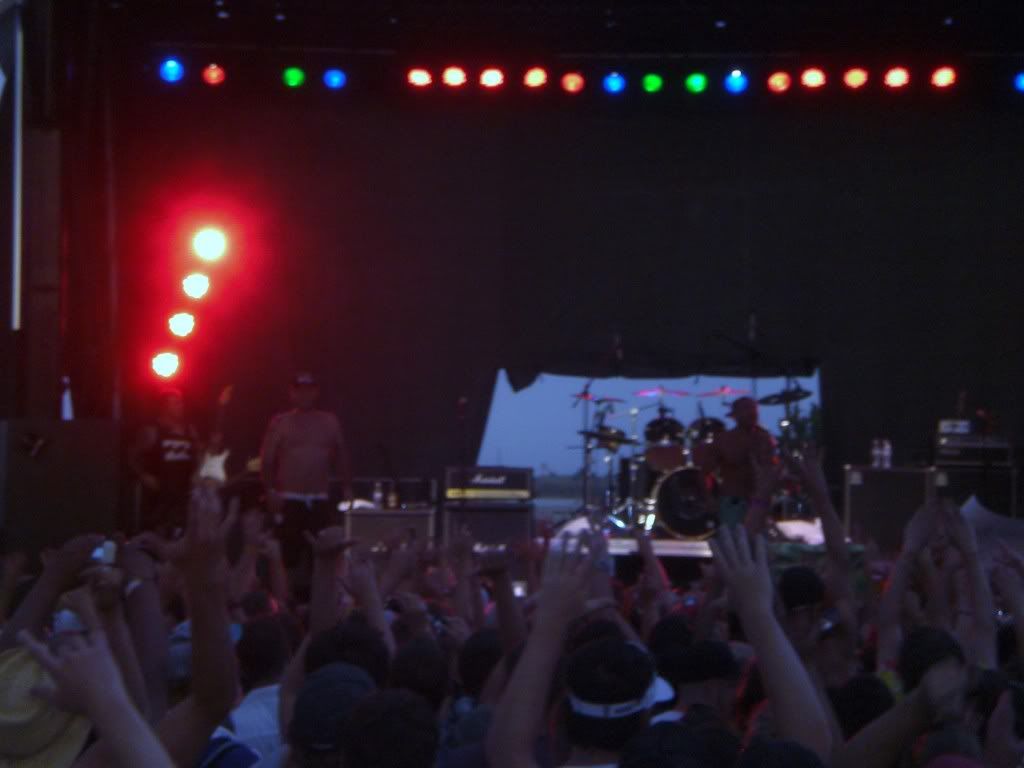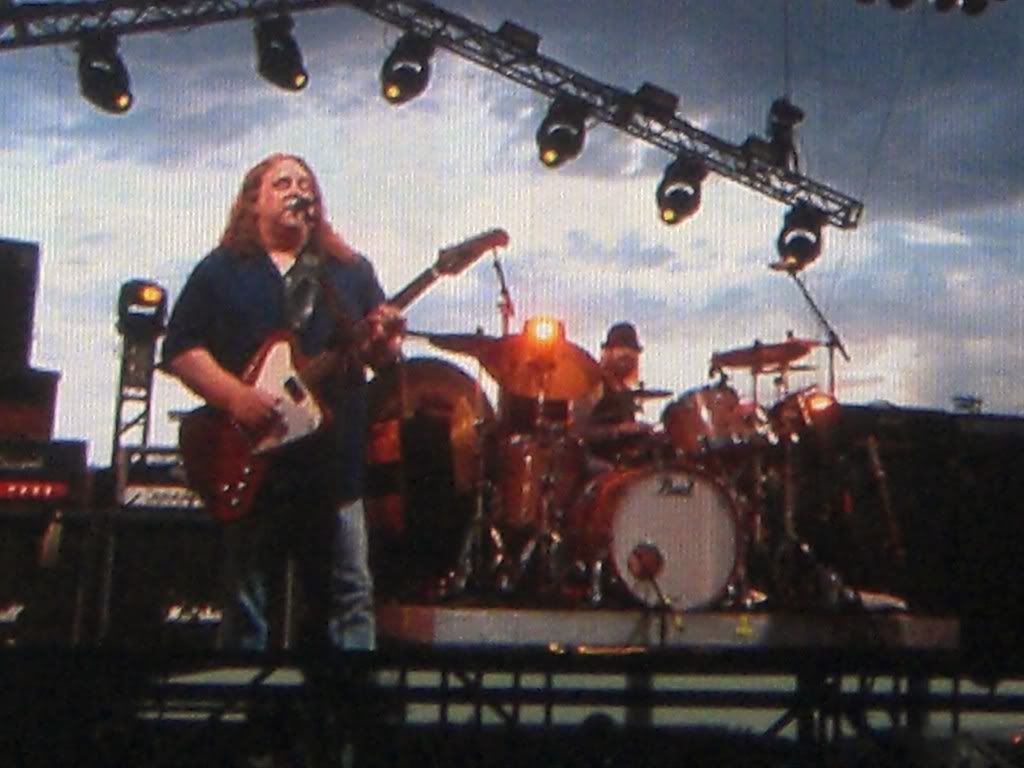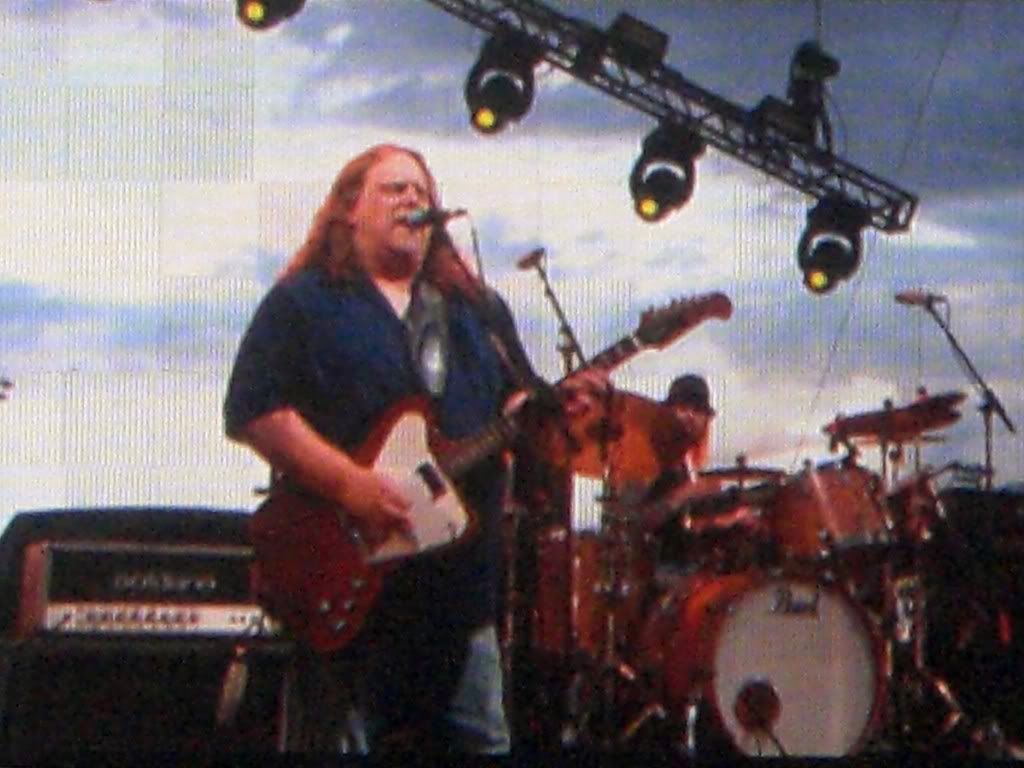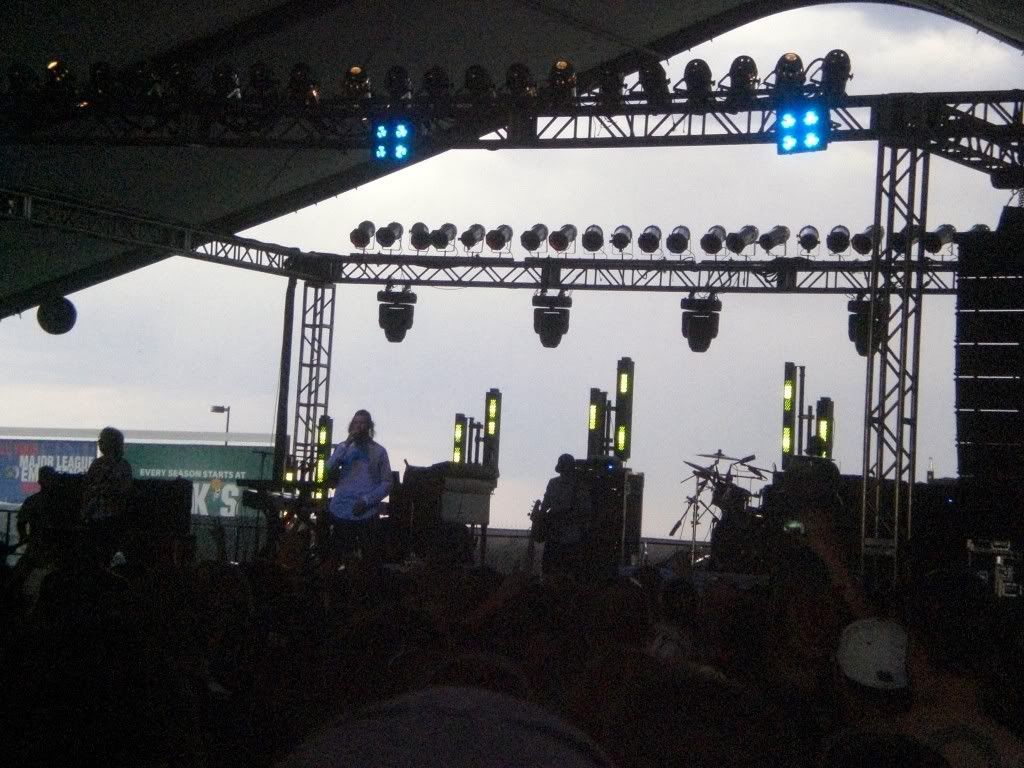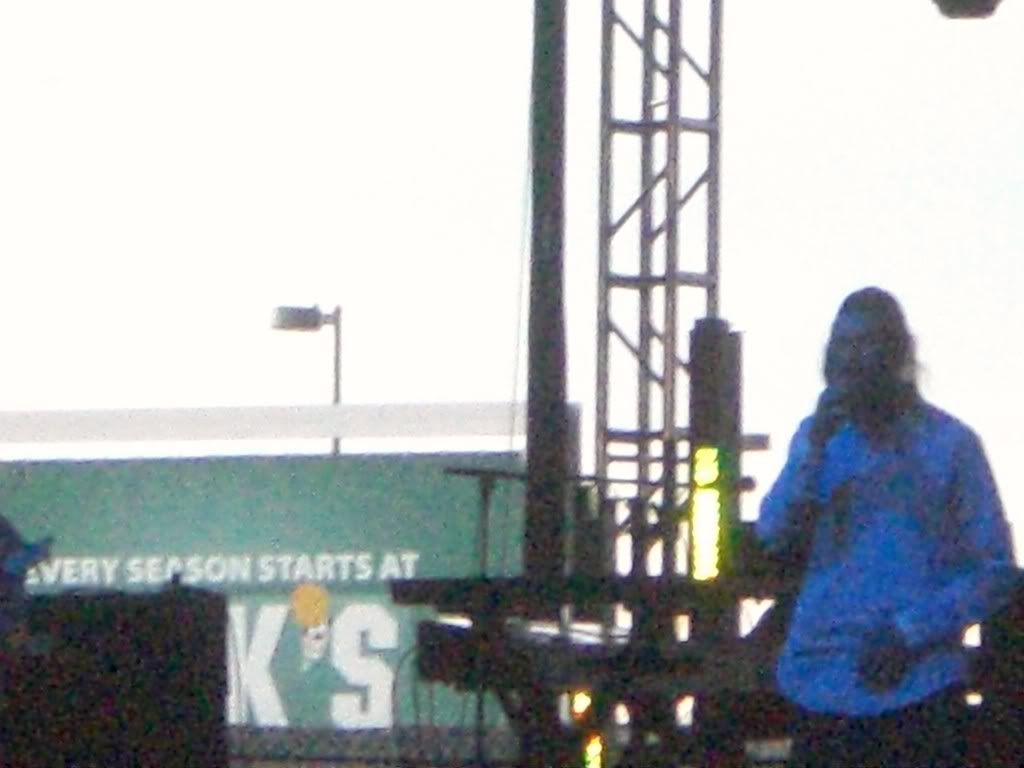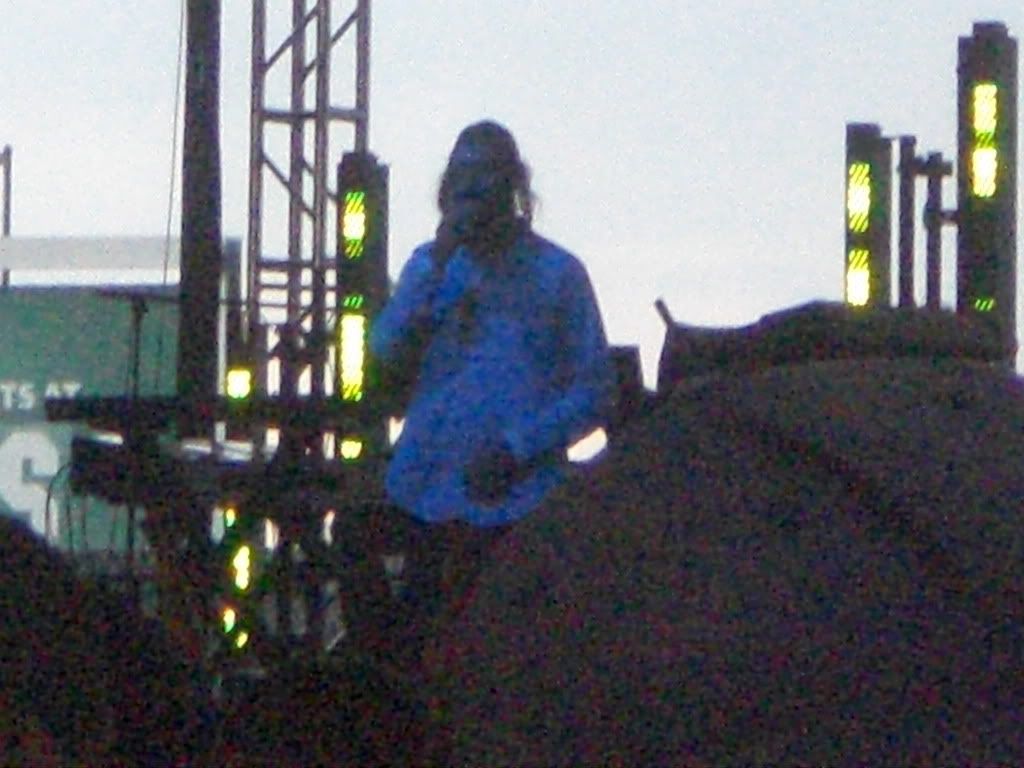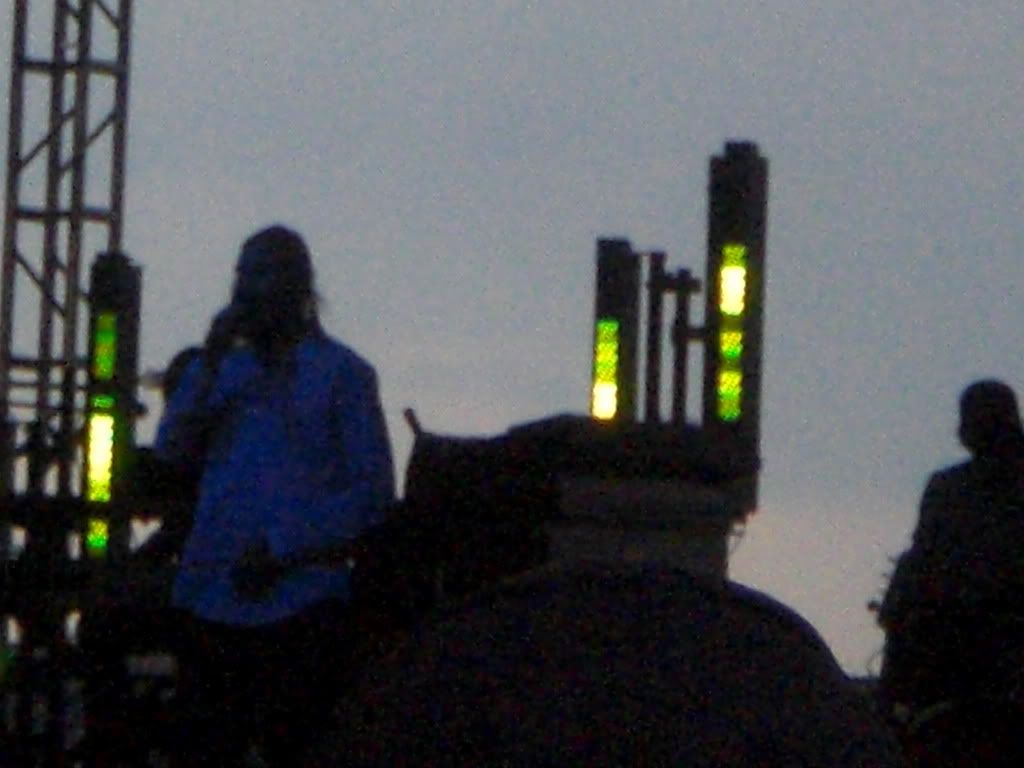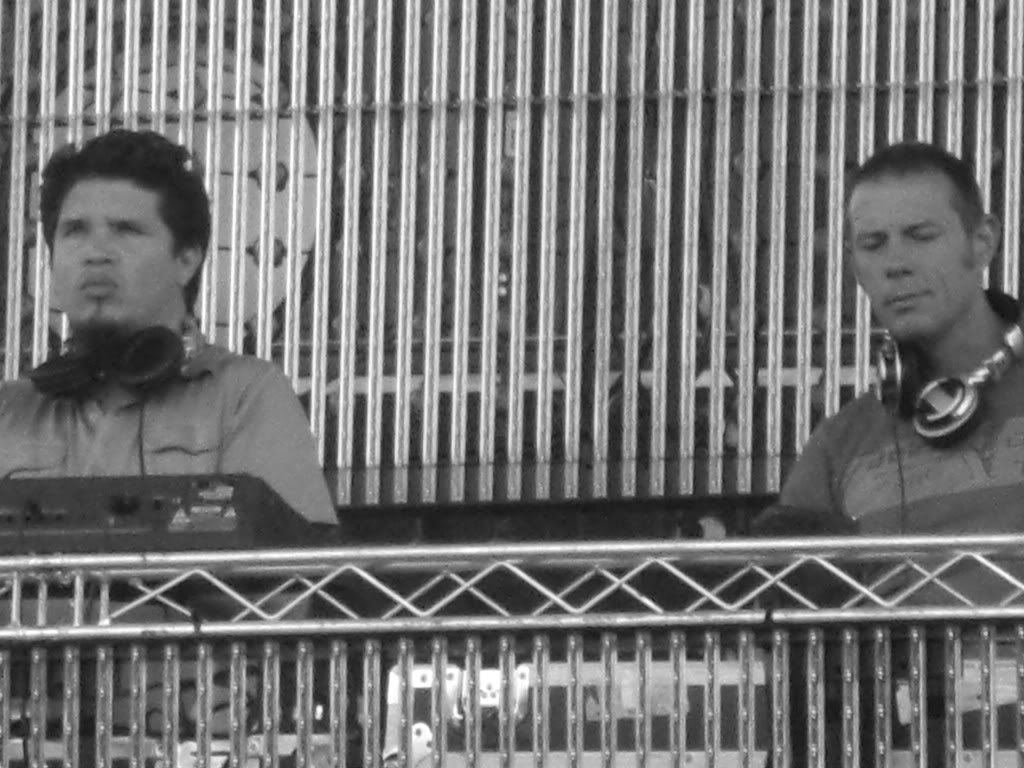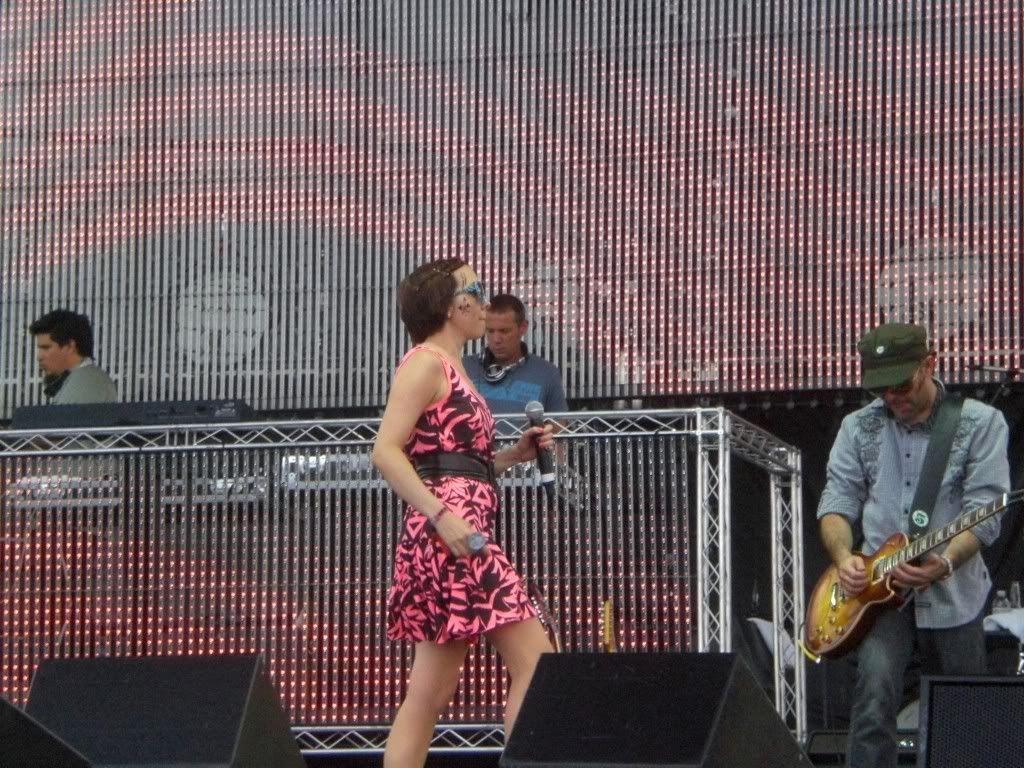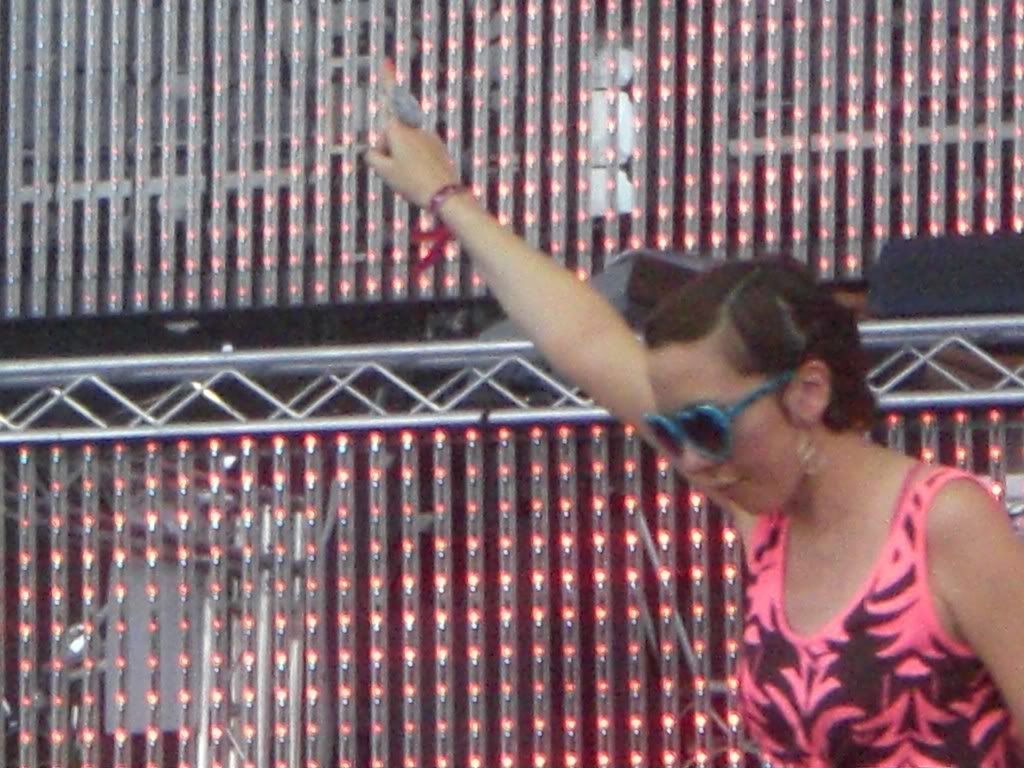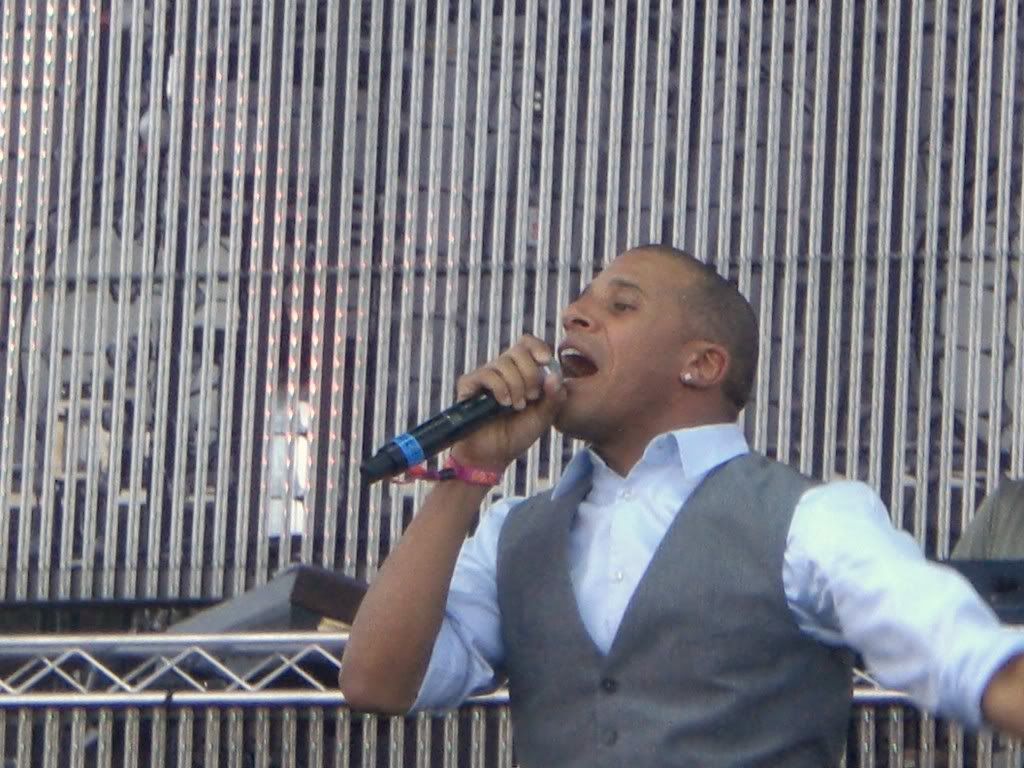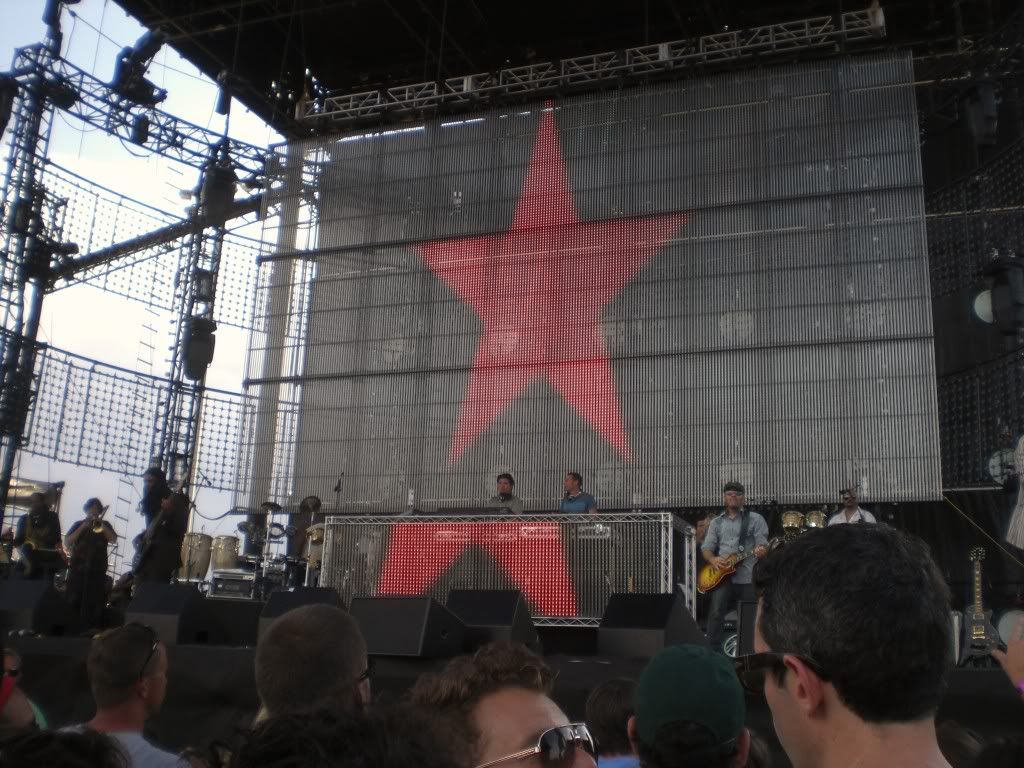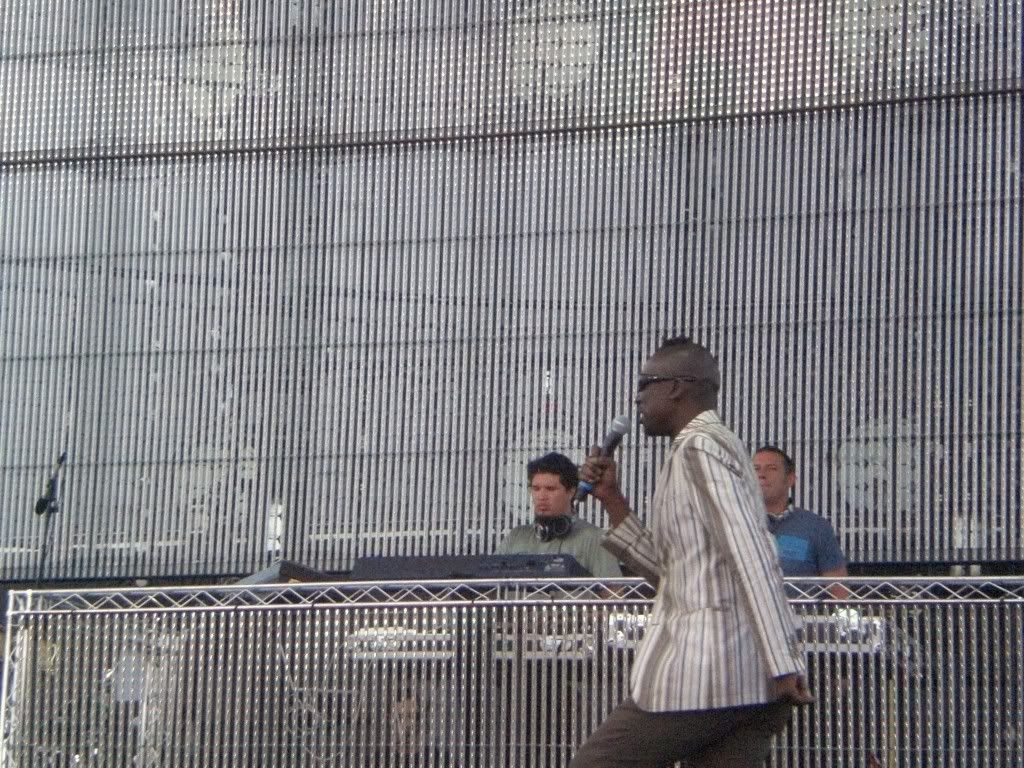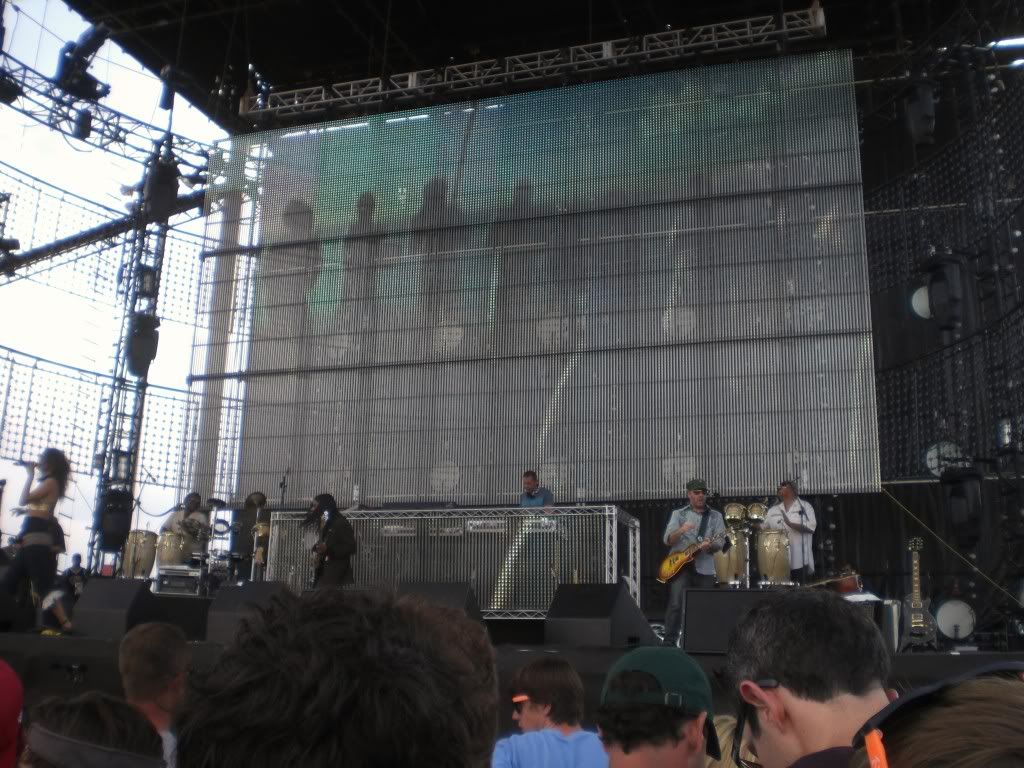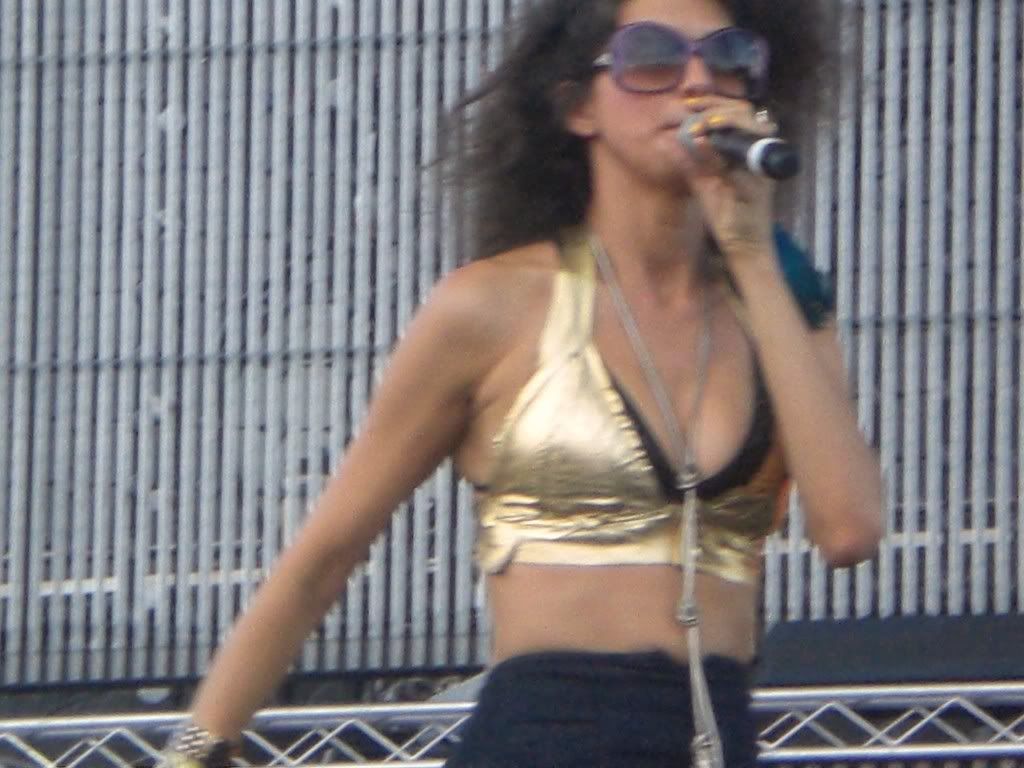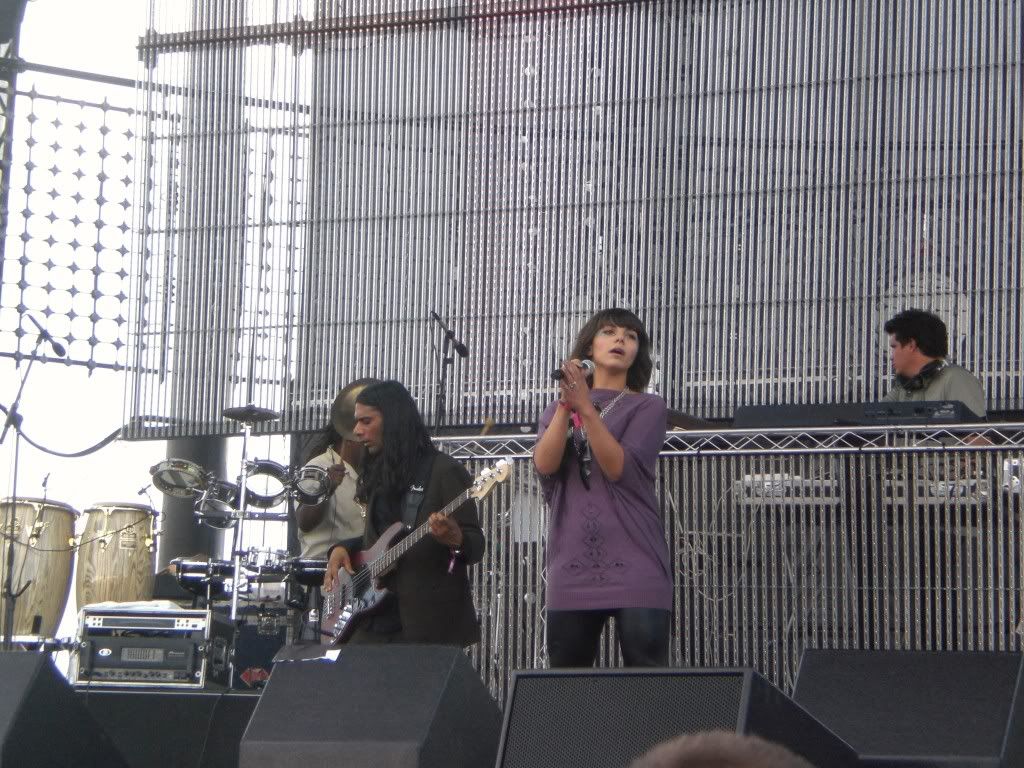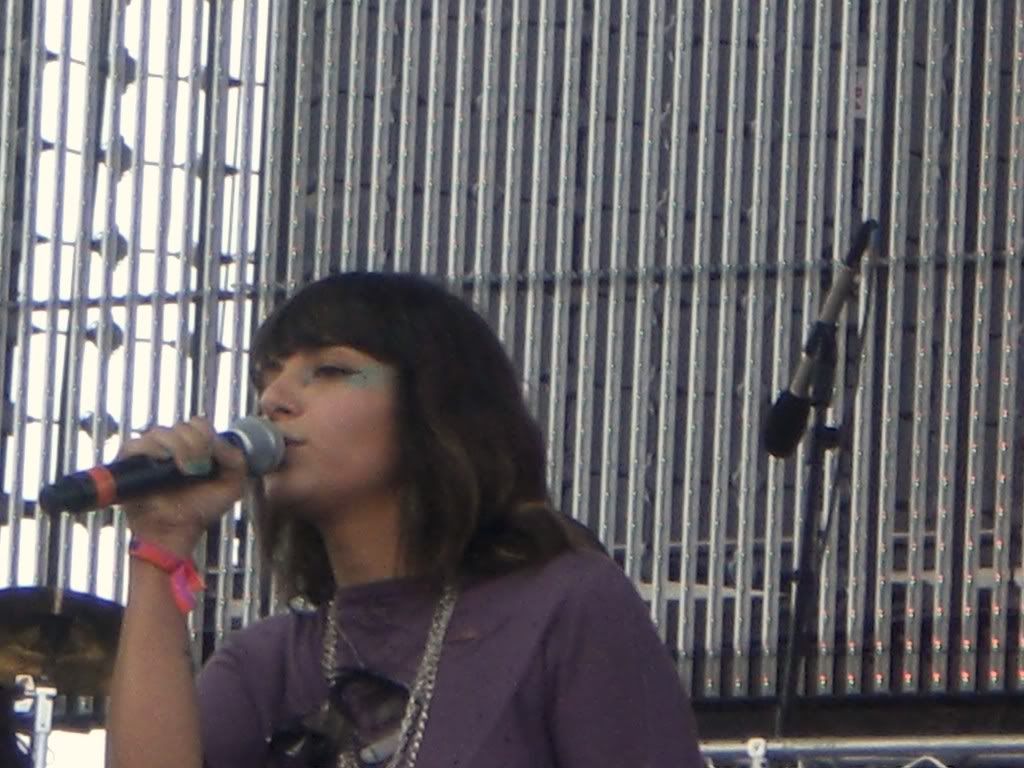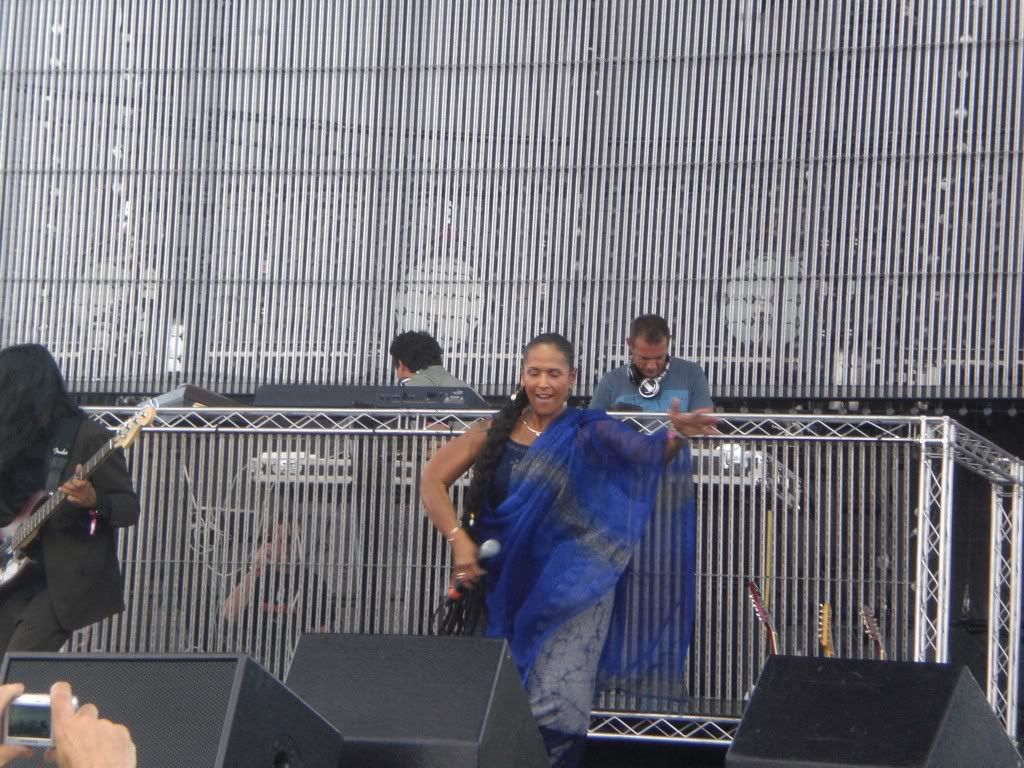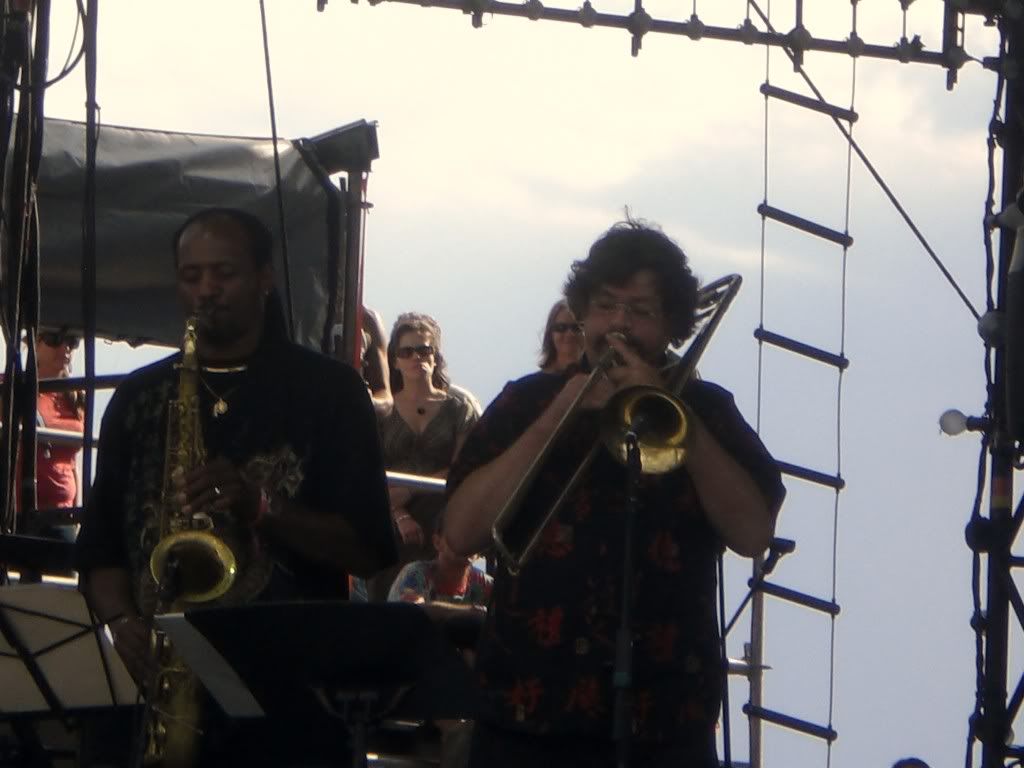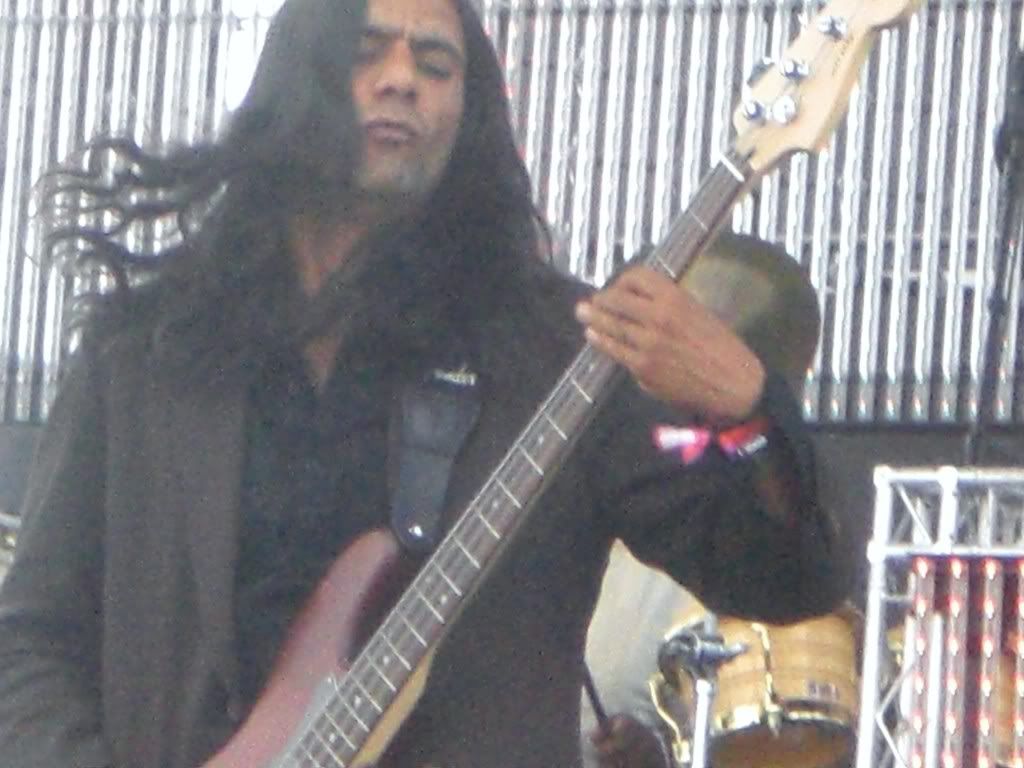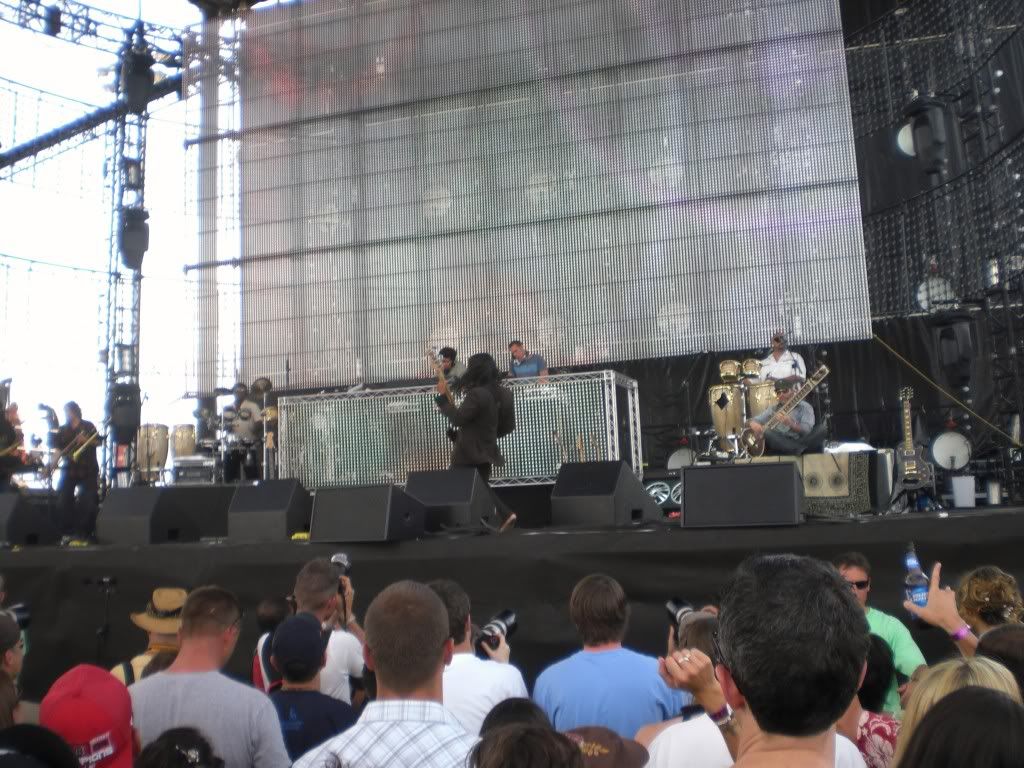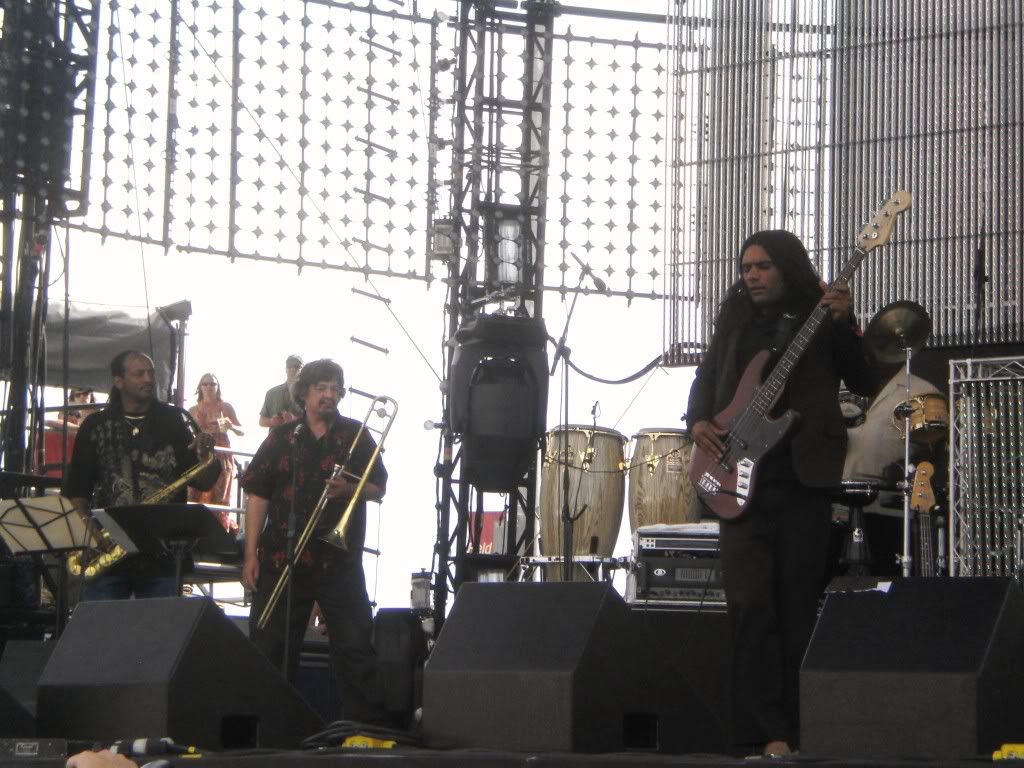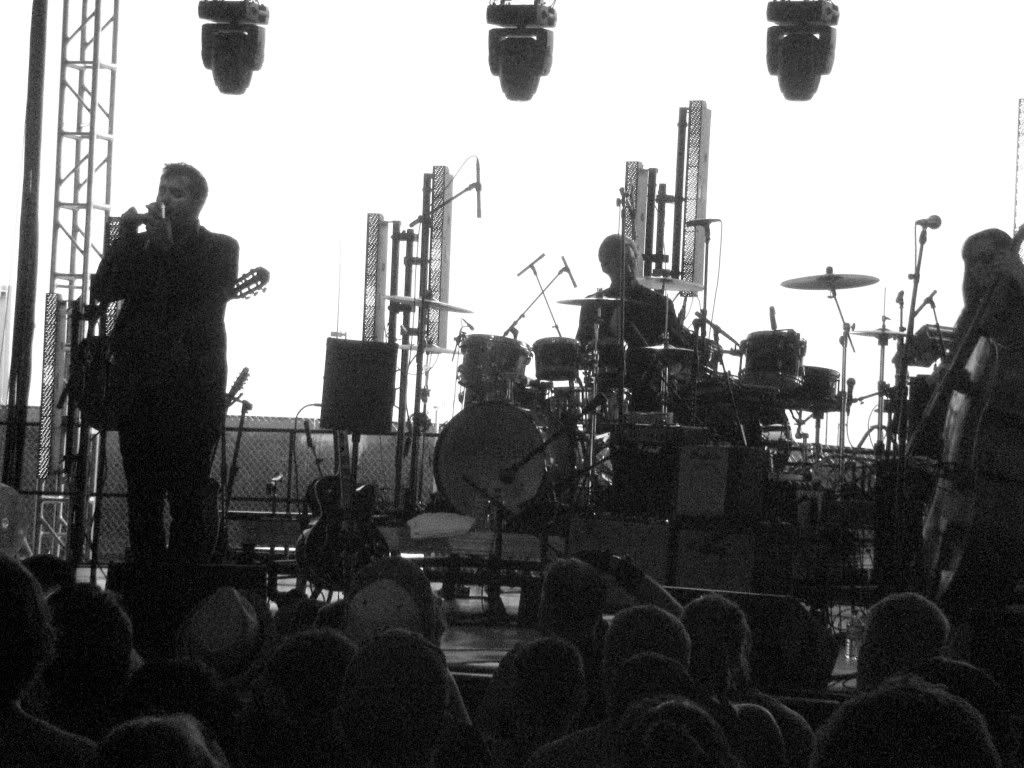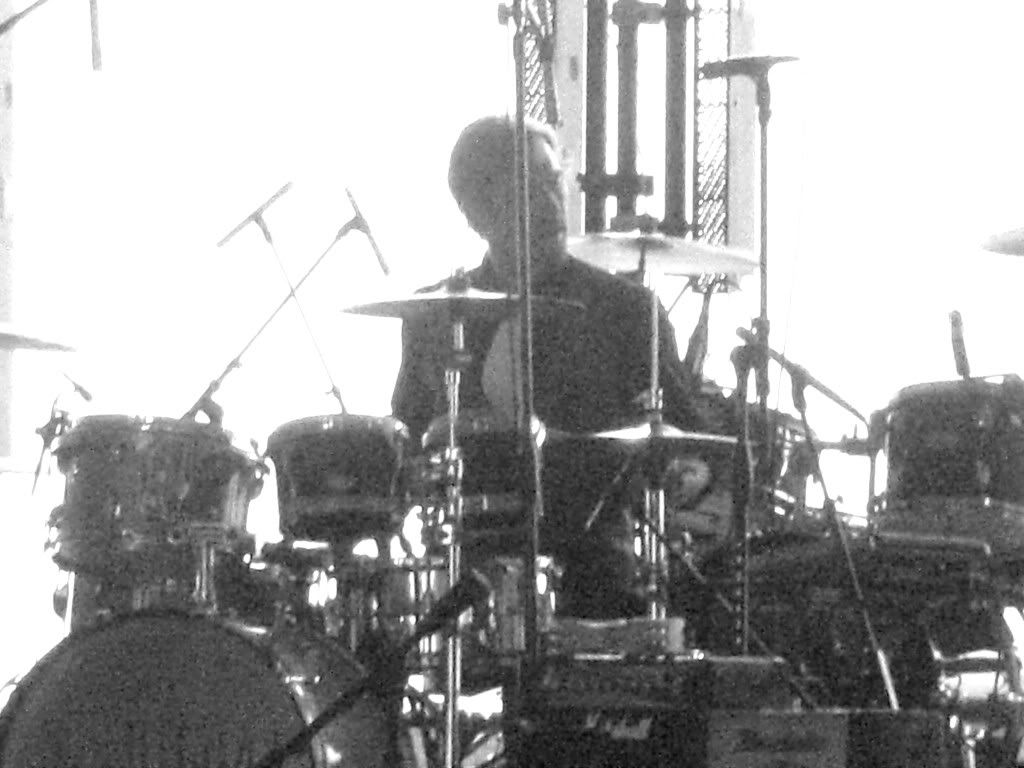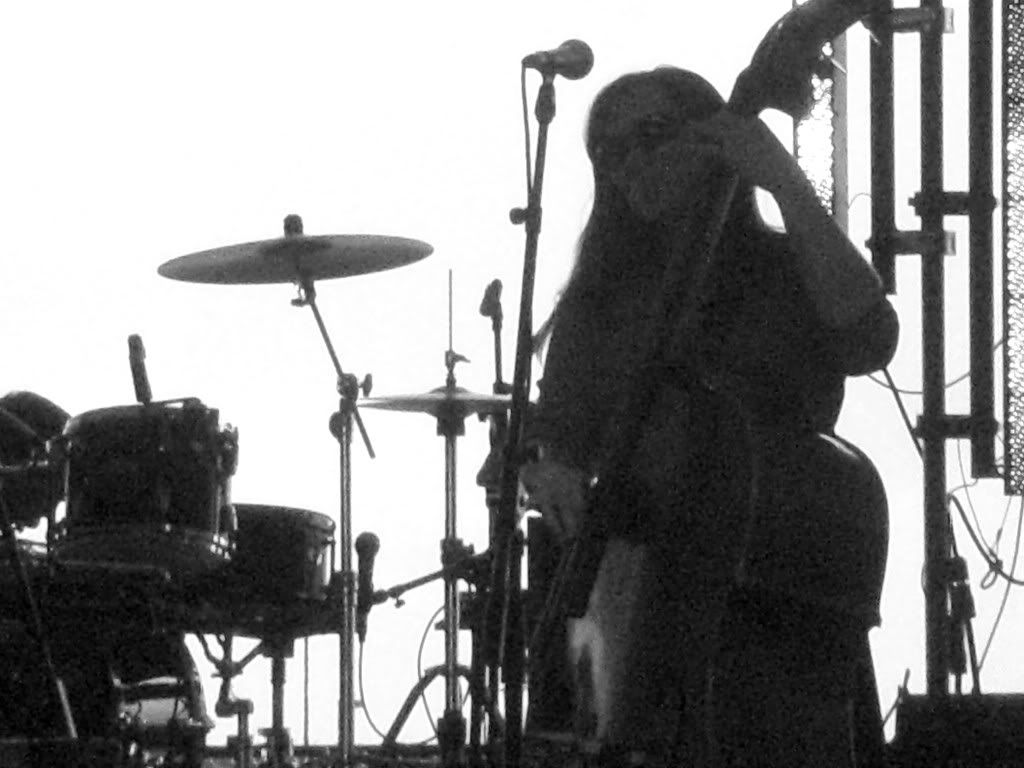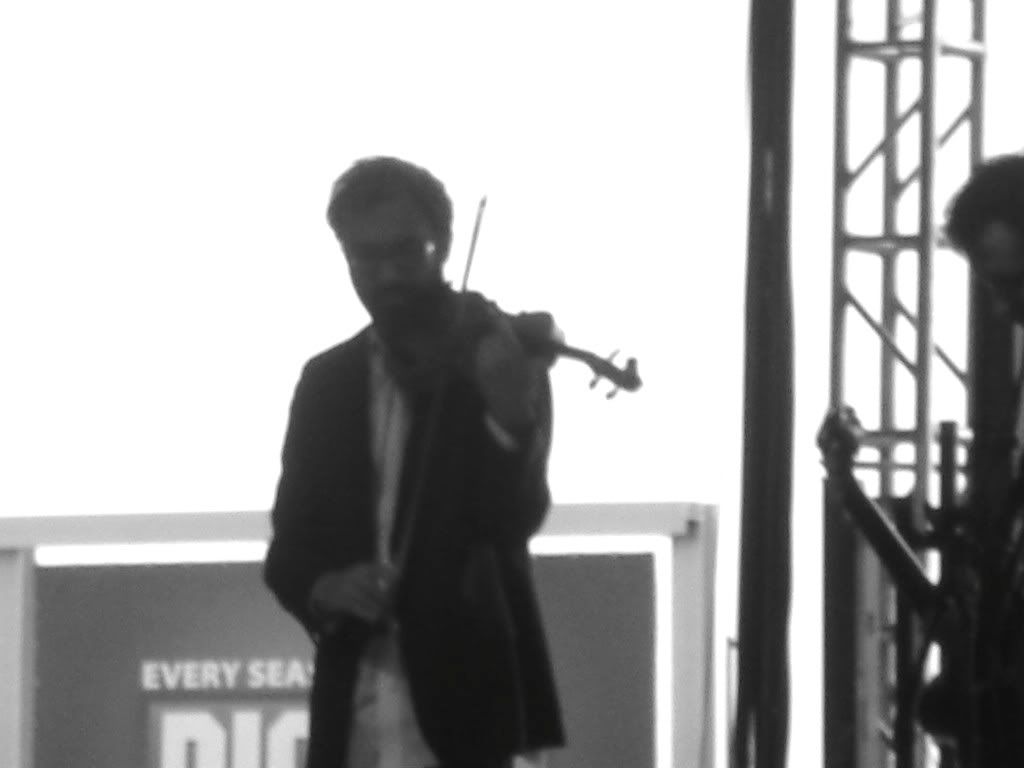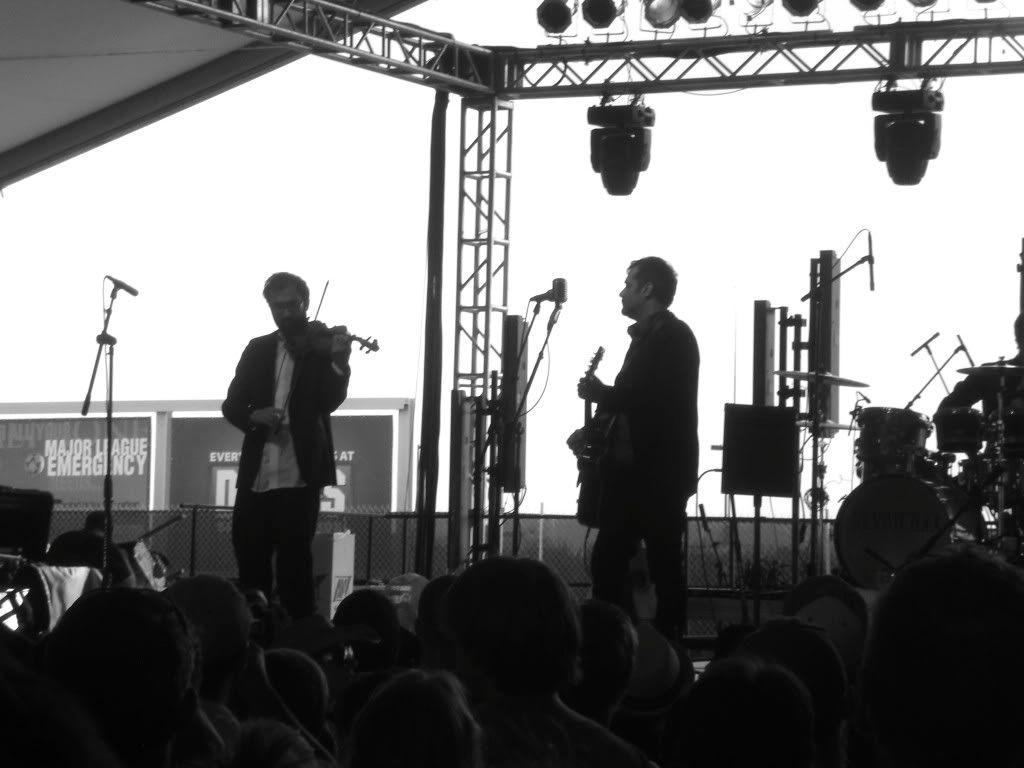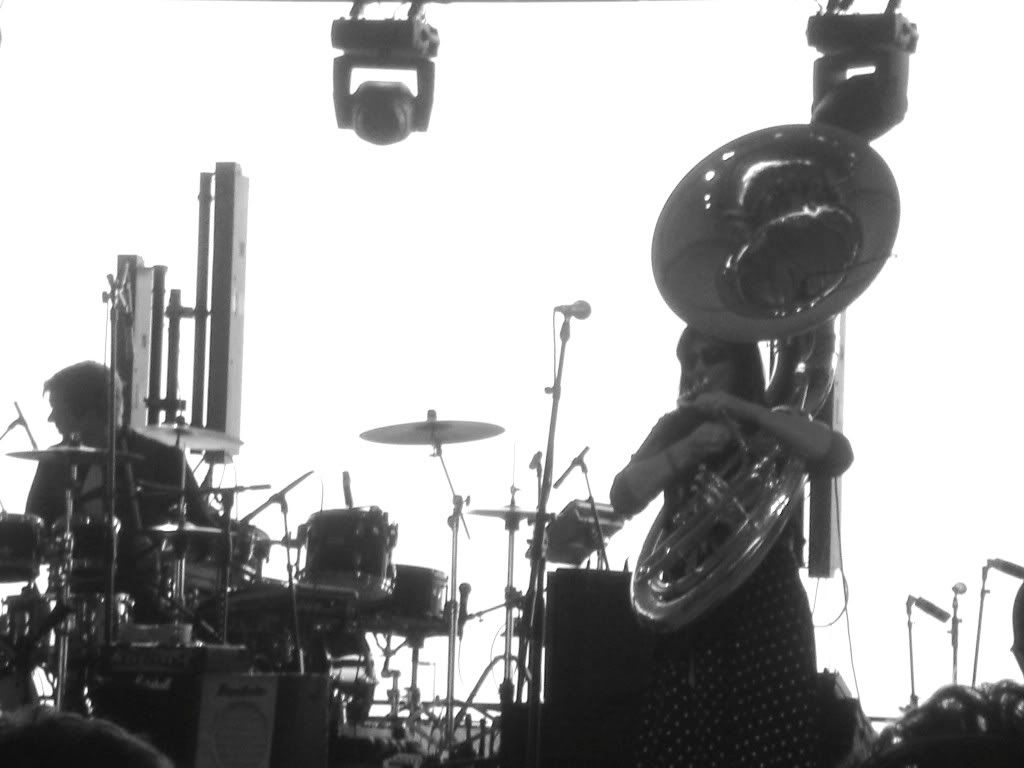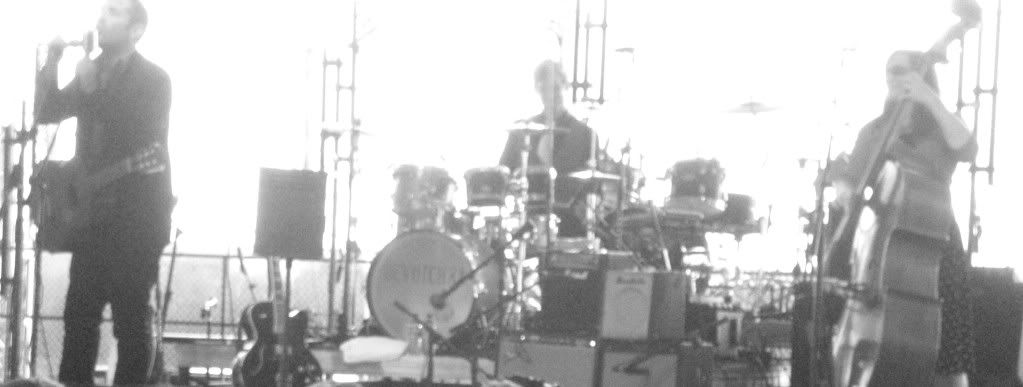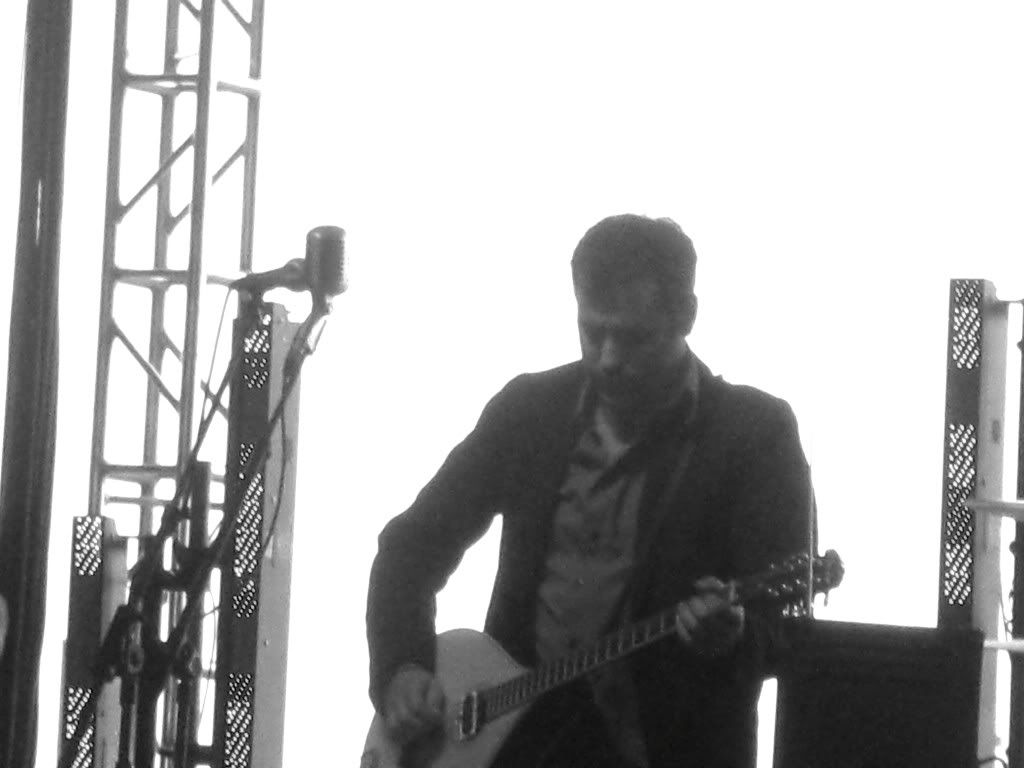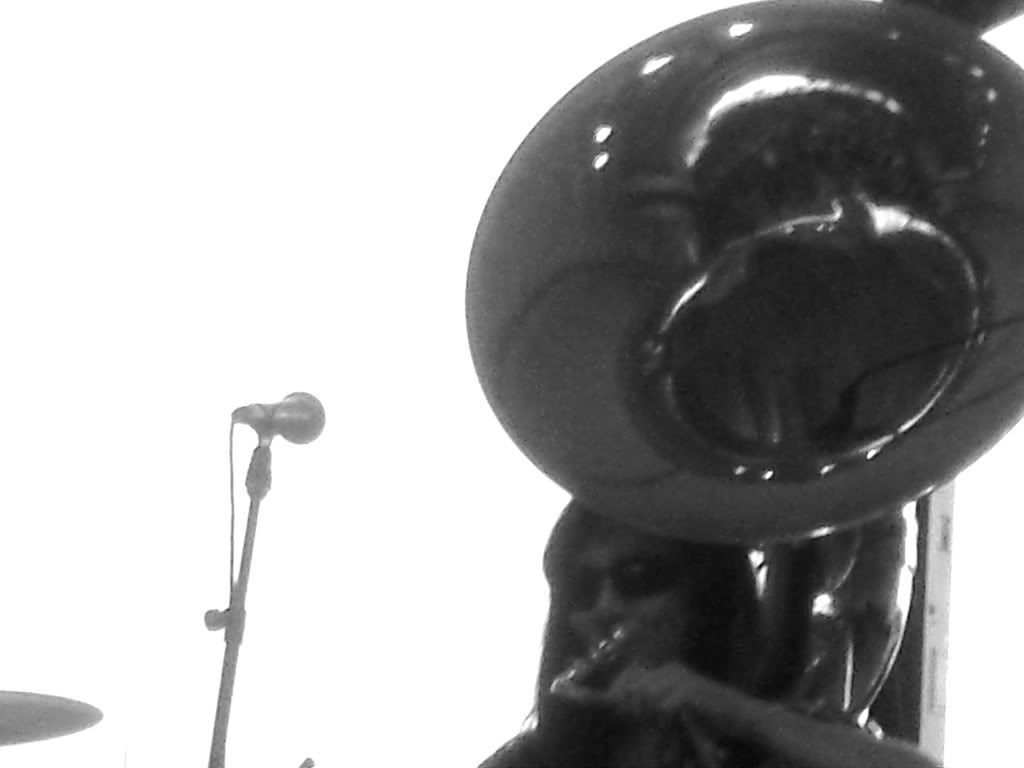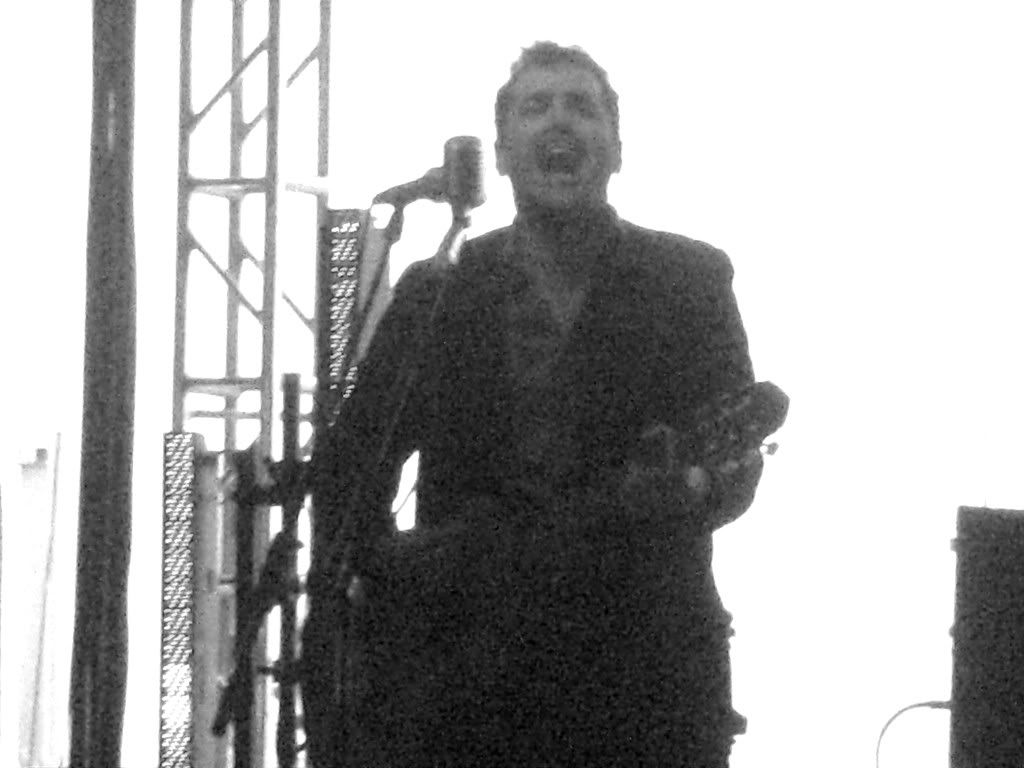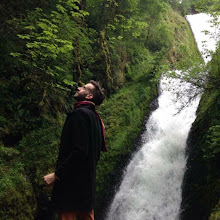
Misquoted: w/ Rocco DeLuca and Ryan Carman
Rocco DeLuca and the charming, though quiet, Ryan Carman joined me for an interview during the Mile High Music Festival, and it was, if anything the longest interview I did. It was also one of the most fun. Rocco talks about Sigur Rós, the best album coming out next year, and, my favorite topic, Appalacian Folk:
LHJE: I caught your set earlier today, and it was freaking awesome. I must not have heard the newest record, because that's what I remember the record I heard sounding like.
Rocco DeLuca (guitar, vocals): Was it Mercy?
No, I haven't heard that one yet. I probably have the one prior to that.
RD: That's even different than what you saw, we're constantly doing something different.
Yeah yeah. Well I'm going to try to keep this short, so I'm just going to bust into the questions. Have you noticed any sort of trends in current music, pop or otherwise? And what direction, if any, do you think it's going?
RD: Well I've noticed a couple things. I see two movements happening at the same time. I kind of speak from some experience because Ryan and myself have had a foot in two worlds, one being the pop world and the other one is with underground bands touring. So we've kind of been seeing both sides of the whole thing, and one things I've noticed is in the pop world there's a … they're marginalizing what's being played and what can get by. And it's getting narrower and narrower, and it's getting so narrow that everything is becoming this streamlined thing, "a formula". Which it's always been, but everything seems to be particularly…
…More formulaic than before?
RD: Yes. The paradox of that is that there always seems to be this other ground swelling movement of experimentation.
You guys seemed to take the experimental route today, merging what sounded like delta blues and, basically, pure feedback.
RD: (laughs) Yeah we're folk and blues fans first and foremost. I'd loosely say primitive folk musicians, like the ones that were actual blue collared workers…
…yeah, like Roscoe Holcomb, Skip James?
RD: You got it. We're fans of that, so, initially, that's where everything starts aesthetically. And then, just based on this many people [at the festival], you need just a little bit more sound pressure … sometimes. And, we get a little excited, so things get a little weird. And that's okay too. But I see this contradiction in America right now with how music is listened too and how it's performed, how it's played. Ryan and I put this record out with Daniel Lanois, and it was one of the bravest things we've ever done because we knew there was no proper home for it. It didn't fit into the pop world, and it didn't really fit with anything else we'd really heard. We were just excited that a record like this even got a chance to at least be out there, floating around. So that's the record, and what we do live is completely different. That's just based on … the room, and how it feels that day.
What was going on with the guy who looked like he was just playing the Marshall Stack?
RD: Oh, that's one of our dear friends who comes on tour with us. We're kind of like a rollercoaster band; sometimes we'll do like huge festivals and be like really soaking up a lot of love from people, and other times we'll be just lost, all over the country, with no money. So, we bring one other friend with us, and that's our friend. We call him Tron, and he's just a dreamy, experimental friend. So, sometimes when Ryan and I play, he sits and he just turns dials.
Yeah, I saw that. I was wondering what he was effecting, like, what was plugged into the stack? Or was it just feedback on itself?
RD: That was just feedback on itself.
Well that's a shame, because I don't think the crowd heard it. I could tell what was probably going on, but it didn't seem like the sound men put it into the mix. It would have added a lot.
RD: Yeah. [Tron's] like a DJ, but using the tools we're playing through. It's kind of a nice philosophy I think, having humans instead of pedals.
I like that idea a lot. Do you find yourself writing songs that go for a certain sound, or is it more along the lines of whatever happens to come out that day is what you perform?
RD: I'm completely surrendered to my environment and what's around me. Maybe we'll have a couple songs we know we're going to play, but for the most part, if you came to see us at a listening room, it would be a totally different experience, and we'd be having a completely different conversation. When we're writing, it's the same thing. It's kind of what's going on. The record Mercy was late nights. Late nights of watching the sun come up over Los Angeles. Losing friends. Finding loves. All these kind of weird energies and passions. We recorded a song a night. Our rule was that we weren't aloud to work on it another day. We put it down that night and that's it. Because a documentation or a record is just that, it's a record of a particular time and place, and this is what we wanted the record to sound like. Like this is where we are at this moment at this particular time. I'm sure you could spend a year making a record, and I've done that, we've done that. Over months we made the first record, and that was fine, there's nothing wrong with that. But I realized that it wasn't capturing what I wanted to capture, which was the time and the place and the moment. And that's what a record is, and that's why we wanted to make a real record.
For both of you guys, what kind of stuff has been coming out more recently that has really inspired you to think about music in a new way?
RD: I think anything from the fearless band from Iceland Sigur Ros. They've definitely given me hope. In a world that's marginalizing more and more, this is something that just comes with a sledgehammer. It's like a perfect act of freedom. Any time you see Neil Young play live, or the fact that Bob Dylan won't play a song off his record … I love this, this is just amazing. And then Daniel Lanois, he's putting together a new record right now that's going to blow everybody's mind next year. Whenever he plays, or we get to play with him, for me it's like being with one of the last great masters. He holds the secrets with him. He's got this incredible soul knowledge that he shares when he's around other people. I don't see it too often like I do with him. So any time he's working on something, our ears perk up and we get a bit excited want to go play somewhere.
Any older records that, to this day, still change the way you think about music?
Ryan Carman (drums): Yeah.
RD: Tons. I'm sure Ryan has his own personal collection. For me it was all those folk records. You mentioned Roscoe Holcomb, Clarence Ashley, anything by Mississippi John Hurt, Son House, Fred Mcdowell…
You guys played a cover of Son House, right?
RD: No no I dedicated it to Son House. It was a dedication to that spirit. Female singers [that I admire] like Malia Jackson, Billie Holiday, Nina Simone. These are the voices, the folk guys, those are the words and the instrument. We're also in love with rock and roll music at it's conception. But I'm sure there's a particular record that you love Ryan.
RC: Yeah, I've been listening to a lot of Goat Head Soup. I love old Rolling Stones. It's hard to think of stuff right off the top of my head. I get lost in my iPod, that's why I went back to vinyl.
RD: You've been listening to a lot of Funkadelic records.
RC: Oh I've been listing to a lot of funk music recently.
RD: We've been on the road, and we've made a rule that we weren't allowed to listen to anything but reggae for the whole trip. And we did it all too. We did all the studio 1 recordings. Wasn't that nice?
RC: Yeah
RD: It was a nice rule. It was almost like a discipline. Plus I learn a lot from the bass playing on those records.
Yeah. Well I think I'll take no more of your time. Thank you fellas.
RD: Yeah sure.











